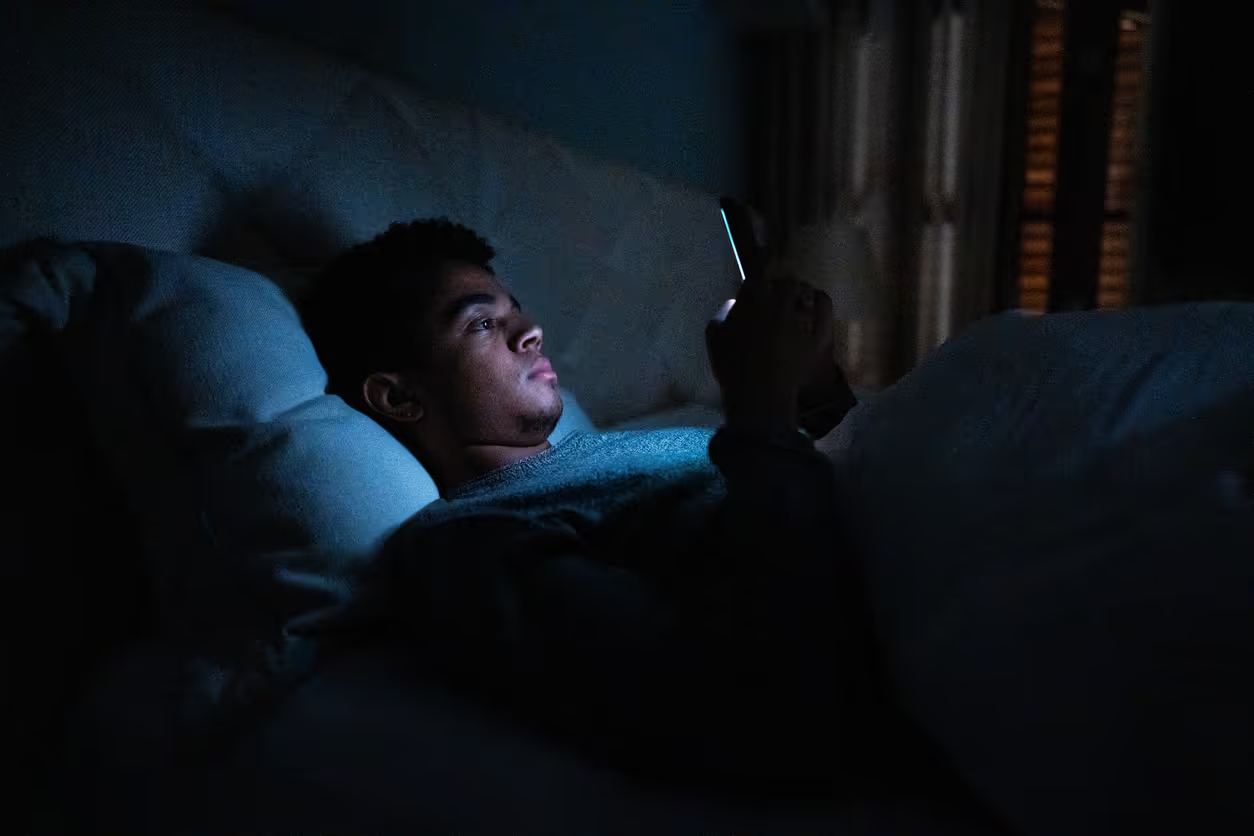What is Cognitive Behavioural Therapy for Insomnia (CBT-I)?

Everything you need to know about this proven, drug-free sleep solution
If you struggle with falling asleep, staying asleep, or waking too early, you’re not alone—and you’re not without options. One of the most effective, evidence-based treatments available is CBT for insomnia, or Cognitive Behavioural Therapy for Insomnia. This structured, short-term approach helps people change the thoughts and behaviours that interfere with sleep—and best of all, it works without medication.
If you want to know more about your sleep health, try taking our comprehensive free Sleep Assessment and in only a few minutes of answering questions you will receive a free Sleep Health Report.
We have successfully treated insomnia and other sleep disorders for more than 40+ years. Our protocols are proprietary—a direct result of practitioner feedback from thousands of client sessions and training cohorts—meaning more precise, individualized, and trusted outcomes than off-the-shelf CBT‑I. Find out how we can help you achieve lasting improvements to your sleep health, general health and wellbeing. Start your journey here.
What is CBT for insomnia?
CBT-I is a type of therapy designed specifically to treat chronic insomnia. Unlike sleep medications, which can offer temporary relief, CBT for insomnia addresses the underlying causes of sleep problems. It teaches you how to change unhelpful sleep-related habits and beliefs, so you can retrain your body and mind to fall asleep more easily—and stay asleep through the night.
The American College of Physicians recommends CBT-I as the first-line treatment for chronic insomnia.
How does CBT-I work?
CBT for insomnia typically includes five core components, delivered by a trained therapist or through a structured digital programme:
1. Sleep education
Learn how sleep works and what factors affect it. Understanding your circadian rhythm, sleep cycles, and how behaviours (like caffeine or napping) affect rest is a critical first step.
2. Sleep restriction therapy
This involves limiting the amount of time you spend in bed to match your actual sleep time, which builds up sleep pressure. Over time, your sleep becomes deeper and more consolidated.
3. Stimulus control
Helps you reassociate the bed with sleep, not wakefulness or worry. This includes going to bed only when sleepy and getting out of bed if you can’t fall asleep within 20–30 minutes.
4. Cognitive restructuring
Addresses unhelpful beliefs and thoughts like “I’ll never sleep tonight” or “I can’t function without 8 hours.” CBT-I helps you reframe these thoughts to reduce anxiety and mental arousal.
5. Sleep hygiene
Involves fine-tuning daily habits—like screen use, caffeine, alcohol, and bedroom environment—to promote long-term, natural sleep.
How long does CBT-I take?
CBT for insomnia is typically completed in 4–8 weekly sessions, either in person, online, or via self-guided programmes. Many people begin noticing improvements within the first few weeks—and results are often long-lasting.
Studies show that 70–80% of people experience significant sleep improvements with CBT-I, even years later.
Why choose CBT-I over medication?
- No side effects
- Builds long-term skills
- Improves mental health and daytime function
- Recommended by major medical organisations
While sleeping pills may help in the short term, CBT-I is a proven long-term solution that empowers you to take control of your sleep naturally.
Final thoughts
CBT for insomnia is not just another sleep tip—it’s a powerful, structured solution backed by decades of research. Whether you’ve struggled with sleep for months or years, CBT-I can help you retrain your brain, restore healthy sleep habits, and finally get the rest you need.
If you're ready to stop the cycle of sleepless nights and take a proactive approach, consider talking to a CBT-I-trained therapist or enrolling in a digital CBT-I programme.
Better sleep starts with better strategies. CBT-I gives you the tools.
Frequently asked questions
What is CBT-I and how is it different from regular CBT?
CBT-I is a specific form of cognitive behavioural therapy focused on insomnia. It addresses the thoughts and behaviours that interfere with sleep, whereas regular CBT can cover a wide range of mental health issues.
Is CBT-I more effective than sleeping pills?
Yes. Research shows that CBT-I provides longer-lasting improvements in sleep compared to sleeping pills, and without the side effects or dependency risks.
Can I do CBT-I on my own?
Many people benefit from self-guided digital CBT-I programmes. However, working with a trained therapist can provide added personalisation and accountability.
How soon will I see results?
Most people notice improvements within 2–4 weeks, with continued progress over the full course of treatment.
Is CBT-I suitable for everyone?
CBT-I is effective for most adults with chronic insomnia. If there are underlying medical conditions or sleep disorders like sleep apnoea, those should be addressed in parallel.
Book a time with one of our sleep specialists to get your sleep back on track.





